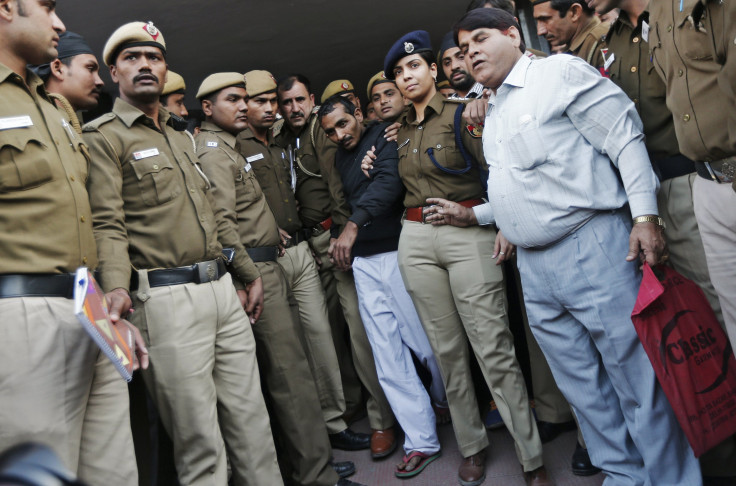Delhi Bans Uber, Police Book Company For Cheating; Thailand Asks Company To Halt Services

Update as of 3:51 a.m. EST: Thailand's Department of Land Transport on Tuesday ordered the San-Francisco-based online taxi booking company Uber to halt its services in the country, claiming it was operating illegally, according to Reuters. Authorities reportedly said that Uber's drivers were not registered to drive commercial vehicles and the company's payment system did not comply with the country's regulations.
According to Reuters, Uber officials had been scheduled to meet with government officials before a woman in New Delhi alleged that she was raped by a driver contracted to Uber.
The transport department in India’s capital, New Delhi, has banned the use of all Internet-based taxi services that are not registered with the state government until they acquire the correct operating license, a government official said Tuesday. The move comes after a woman claimed that she was raped by a driver contracted by Uber's cab services on Friday night.
A public notice was issued late Monday stating that only six registered radio taxi companies would be allowed to operate in New Delhi, while blacklisting other services including San Francisco-based Uber. Delhi police also booked Uber on charges of cheating customers by promising them a safe commute by verified drivers. An initial investigation revealed that the company failed to conduct a proper background check on the accused driver, who was arrested in a 2011 sexual assault case and spent seven months in jail before being acquitted.
"We have banned Uber. Another public notice will be issued tomorrow for banning all non-registered cab service providers. It's almost done," Kuldeep Singh Gangar, a spokesperson of Delhi's transport department, said according to Reuters.
Home Minister Rajnath Singh also issued a statement urging other states to ban unregistered taxi services, local media reports said. Uber reportedly operates in 10 cities across India. NDTV, a local news network, reported that local police in Mumbai, the country's financial capital, would conduct a census of all the cabs in the city.
However, Union Transport Minister Nitin Gadkari on Tuesday said that imposing a ban on taxi services was not a solution, and instead spoke of a need to improve regulations.
"It doesn't make sense to ban services, tomorrow if something happens in a bus we can't ban that, the system needs to be changed,” Gadkari said, according to First Post, a news website, adding that, “the system of giving drivers license is faulty and a new digitalized system will be designed where everyone's track record can be viewed.”
The alleged rape on Friday has renewed the debate over women's safety in India, and the use of employee background checks by companies providing transportation services in the country.
According to some estimates, the market for taxi services and car rentals in the country is currently worth $7 billion and is expected to grow to $9 billion by 2017. Uber, which has also reportedly faced issues in other cities around the world, has raised funds that value the company at $40 billion, according to Reuters. On Monday, the U.S. city of Portland, Oregon, sued Uber for "operating private-for hire transportation services in the city," according to a statement from the city's transportation bureau.
The accused driver was arrested after a search operation in a town south of New Delhi on Sunday and was ordered to police custody for three days by a Delhi court on Monday.
Police on Monday also reportedly questioned officials from Uber India who said that they only went through documents provided by the cab drivers but did not check their authenticity, The Times of India, a local newspaper reported.
“They said that they do not even verify their addresses but rely on the addresses on which their bank accounts have been opened. They never check the authenticity of their addresses,” a police official said, according to The Indian Express.
Other companies operating in India's booming taxi services industry that are currently under fire include Ola, TaxiForSure and TaxiPixi. TaxiForSure, another Internet-based cab service operating in India, issued a statement Monday expressing its regret over the rape of the woman. It also revealed details of several safety measures undertaken by the company.
“It is a dark day for humanity and it pains us that these horrible crimes – irrespective of company, community or caste -- keep happening,” the company said, in the statement.
However, local reports claimed that even after Uber's services were banned Monday, it operated as normal in New Delhi, and customers could still book a taxi using the company’s smartphone app.
© Copyright IBTimes 2024. All rights reserved.











